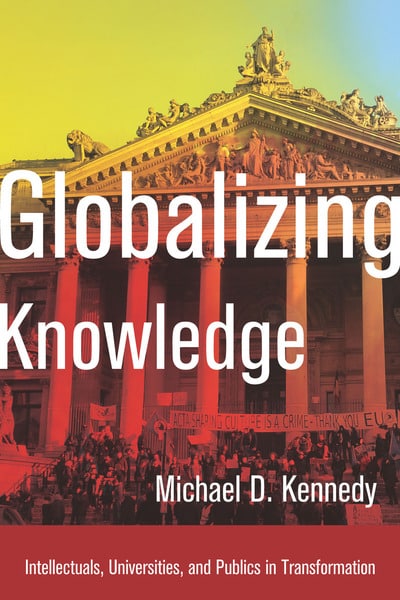
Michael D. Kennedy
Professor of Sociology and International and Public Affairs, Brown University
When did you first develop an interest in Slavic, East European and Eurasian Studies?
Based on my undergraduate study at Davidson College, I had intended to study the sociology of religion, especially of Hinduism, when I applied to the University of North Carolina Department of Sociology in the late 1970s. But in the three weeks preceding my matriculation, I found riveting a special issue of Social Forces dedicated to inequality in socialist societies. It was fate. I switched course, and I decided to study Russian with Victor Friedman in the Slavic Department so that I might begin to prepare for research in the Soviet Union. I worked closely with Professors Gerhard Lenski and Tony Jones, both with substantial interests in communist-led societies.
I switched to the study of Poland rather than the USSR in the spring of 1980 thanks to Gerhard Lenski. He told me that Poland had a superior sociological tradition from which I could learn, and its research environment was much more open than the Soviet Union’s. When the Solidarity movement formed later that year, fate again wagged its fickle finger: now I could not only study inequality under communist rule, but also the struggle against it. I then studied Polish with Piotr Drozdowski, a Slavic department graduate student who himself was a student of that department’s professor, Madeline Levine. I also worked on Poland with a political scientist from UNC-Greensboro, Maurice Simon.
I received an IREX fellowship to conduct research on occupational prestige in 1983-84, where I worked especially with Włodzimierz Wesołowski, Witold Morawski, and Irek Białecki in gathering data on professionals and power in Poland. That fieldwork informed my dissertation. After years revising that dissertation, I published Professionals, Power and Solidarity in Poland (1991) .
My real grounding in the region came after my appointment at the University of Michigan (UM). I became actively involved in its Center for Russian and East European Studies. Given the terrific colleagues I enjoyed there and in other parts of the UM interdisciplinary environment, I developed new interests in national identity, business and economic transition, the environment, and war, along with some facility with other nations’ engagement, especially Ukraine, Estonia, Uzbekistan and Yugoslavia. That next decade’s work is evident in my Cultural Formations of Post-Communism (2002)
How have your interests changed since then?
When I became UM’s vice provost for international affairs in 1999, I developed a broader interest in what it meant to globalize knowledge. My 2015 book, Globalizing Knowledge: Intellectuals, 
What is your current research/work project?
I continue to work on extensions of globalizing knowledge through book panels, talks, and consultations with various universities and foundations about alternative strategies for extending the value of universities for a world in crisis and transformation (see here). I have become intrigued with social media’s possibilities for academics’ public engagement (@Prof_Kennedy on twitter). My association with the Watson Institute for International Studies at Brown University has also led me into the world of policy, with particular interest in how contextual expertise could inform our approach to energy and trade, especially around fracking and TTIP. Finally, I am working on how to assess intellectual responsibility in the address of Russia’s invasion of Ukraine.
What do you value about your ASEEES membership?
Contextual expertise informs all scholars’ work, but too often only implicitly. Working with area studies associations like ASEEES enables us to make that foundation explicit, and even to refine it. Although my recent book is about knowledge across the world, it was because of the quality and terrific diversity of colleagues within ASEEES that I was able to envision how inequalities and interconnectedness within and across world regions shape our approach to learning.